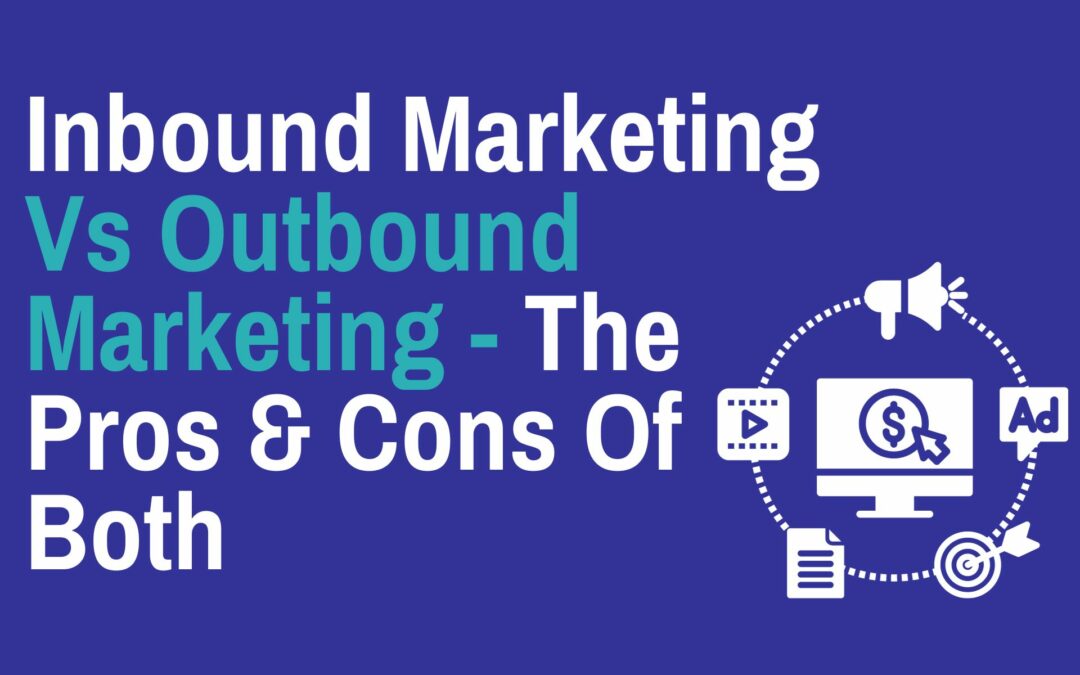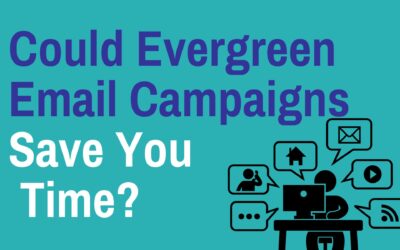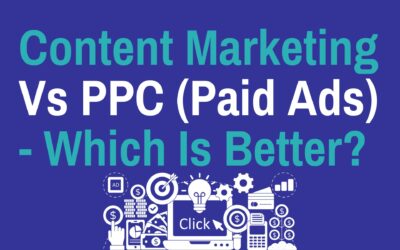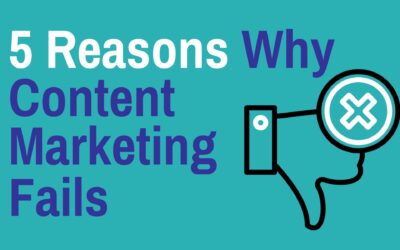Over time, marketers have learned that people don’t always like to be interrupted. Sometimes, you just want to watch your damn video!
That’s how the ‘inbound marketing vs outbound marketing’ debate began. Which is better? A marketing method that entices people in, or one that broadcasts out to the world? And which tactic are you employing most in your business right now?
In this blog, we’ll explain what inbound marketing vs outbound marketing means – and the pros
and cons of both approaches for your business.
Inbound Marketing Vs Outbound Marketing: What’s The Difference?
If these words are new to you, don’t worry. Let’s explore the definitions, starting with outbound.
Outbound marketing is what most of us would consider traditional strategies to engage prospects. It involves loud-and-proud advertisements, billboards, TV and video commercials, leaflets, or anything else with the intention of reaching out to find new customers.
Inbound marketing is a strategy that is based on learning. As the name suggests, it focuses on drawing customers in by providing examples of excellent customer service, useful information about the product or service offered, or anything else intended to establish trust gradually.
Neither one is inherently better than the other – most businesses will do a mix of the two.
For example, if you’ve ever dropped leaflets around the neighbourhoods covered by your company, then that’s outbound marketing. But if you’re answering reviews and FAQs online, that could be considered inbound marketing.
Now that we’ve cleared that up, let’s evaluate inbound marketing vs outbound marketing…
Inbound Marketing: The Pros
Inbound marketing is a fairly new strategy (well, in comparison) born out of the drop in popularity of outbound marketing. So, what can it do that its predecessor could not?
Inbound Marketing Builds Trust
If you take the time to collect a community of people talking about you and your business, you’ll find customers who are in it for the long haul. Because inbound marketing involves answering people’s questions and overcoming objections, you will easily build trust with your customer base in a way that a YouTube ad just wouldn’t be able to do.
Inbound Marketing Tends To Be Better Received
Again: nobody likes to think they’re being manipulated into buying something.
Inbound marketing is a conversation with the buyer, rather than just shouting benefits to your product or service at them. When your buyers feel as though their questions are being answered by someone who cares, they are more likely to open their purses.
It Allows For A Happier Sales Team
Are your salespeople overworked? Strained? Tired of answering the same questions over and over again?
An inbound marketing strategy can take some of this burden off their shoulders.
These days, research shows that 80% of the decision process is already made before a prospect comes to speak to a Sales Rep.
You can thank inbound marketing for that. Providing an honest education about your market (even the ugly bits!) before your competition can do it first – is more valuable to the buyer than getting your sales team to shout: ‘we’re the best!’ from the rooftops.
Less stressed sales team equals better performance, which generates more revenue for your company.
It Gives An Accurate Picture Of Your Customer Avatar
Are you actually reaching the right people?
With inbound marketing, you get up-close and personal with your leads. You can determine what their pain points are, what they are looking for and how you can help them to achieve their goals. Subsequently, the next marketing campaign your team produces will be even better optimised for your customer avatar – leading you on a carousel ride of better clients, more profits and a happier team. Pretty cool, right?
Inbound Marketing: The Cons
Inbound marketing sounds great, doesn’t it? It might feel like a no-brainer, but it isn’t a bulletproof system. For example…
It Takes A While To Work
Inbound marketing takes time before producing noticeable results. If you’re a small business or if you’re particularly reliant on cash flow, you need results now; not tomorrow. In this case, inbound marketing might not be for you just yet…
You Have To Have A Presence Already
In order to build your customer base, you need to have some initial form of exposure. Since inbound marketing is by definition a closed group practice, it might not work on its own.
As we’ve already established, these things take time. And as a new-and-upcoming business owner, you might not have accurate enough data to produce a long-term plan just yet.
It’s Time-Consuming
Not only does inbound marketing take time to work; it also requires a lot of hours. Hours you might not have as a business owner.
Inbound marketing has to come from your heart. Luckily though, outsourcing a content marketing specialist who can write in your voice means that you can implement your marketing strategy without having to sacrifice hours on it.
It’s A Competitive Market
Inbound marketing has really gained traction over the past decade. So when once you may have been the only person in your field delivering this kind of value to your customers, it’s now a pretty common thing.
In other words, you have to be prepared to lay all of your cards on the table just to differentiate yourself from the competition. Which can be an uncomfortable and risky move.
Outbound Marketing: The Pros
Onto outbound marketing. How does it compare to inbound marketing?
It’s Great For Small Businesses
Since inbound marketing relies on pre-existing exposure, oubtound marketing is great for people who are just starting out with their business. In order for people to join your club, they have to know it exists, right?
Outreach remains a key marketing strategy. Just because the media we consume has changed, doesn’t mean outbound marketing is no longer useful. In fact, this couldn’t be further from the truth if you want eyes on your site.
It Can Be Easier To Implement
When weighing up inbound marketing vs outbound marketing, the latter can be much easier to strategise. This is because you aren’t focusing so much on the quality of the customer experience, but the quantity of leads coming your way. It’s a real ‘throw enough mud at the wall and some will stick’ tactic.
With that being said, customer experience shouldn’t be neglected with outbound marketing! You’ll still need to make sure you know what you’re doing with Google Ads, otherwise you could end up wasting your cash. Even simple outreach like flyers and leaflets need good copy and design.
Speedy Results
Whilst inbound marketing is a slow burn, outbound marketing promises much faster results when it comes to generating leads. If you’re a business that needs a quick fix with your marketing, consider an outbound strategy to be your new best friend.
Easier Exposure…In Theory
Paying for outbound marketing promises eyes on your page. If you want more leads, this might seem like the way to go. And with exposure comes more people to convert into customers, repeat clients and straight-up fans!
Just be aware that this isn’t guaranteed. You can quite easily spend cash on ads just to get zero leads, meaning disappointment for all involved.
Outbound Marketing: The Cons
You knew this was coming. Outbound marketing can sound too good to be true – and in some aspects, it is. How so?
People Don’t Always Like Ads!
Be honest with yourself. When was the last time you bought something from an ad? Perhaps you’re one of those people who has no objection to scrolling through pictures of your friends’ dinners on Instagram when, poof! You’re suddenly filling a shopping cart on a website you’ve never visited.
This isn’t the majority of people. A lot of your prospects won’t like being spoken at instead of spoken to, which sends a message that you aren’t interested in what they like and dislike.
It’s Often Expensive
Any quick fix comes at a high price. You might find yourself unpleasantly surprised by the cost of outbound marketing – particularly when it comes to paid SEO and social media advertising.
If you don’t know what you’re doing with Google Ads or similar software, you can end up paying more in what marketing specialists call “stupidity tax”. This is when you lose money by trying to implement the ads without knowing what you’re doing, meaning you spend wads of cash and attract no solid leads.
The solution to this is to hire an expert, which – again – costs money! So it’s not as efficient of a system as it might first seem.
For more on this, check out our blog post on the cost of content marketing.
Harder To Receive Feedback
With outbound marketing, you’re not inciting two-way conversations with your customers. This means it can be hard to gather data on whether your campaigns are actually working. If you have a wide reach, how will you know where your ads perform best?
While paid ads are super trackable, your target audience may not feel any reciprocity towards you if their journey to purchasing was just one click. It’s probably not enough to incentivise them to leave a review or complete any kind of ‘How did you find us?’ survey.
Can Seem Impersonal
Customers like to feel special. Valued. Like they’re the only person on your planet when you talk to them.
So if they’re seeing the same advert as everyone else, regardless of interest, how do you think they feel about your business? Unless you happen to be selling something that could literally solve all of their problems, you will struggle with making your campaigns seem personal. Which, in turn, will create an invisible trust barrier between you and the leads.
Inbound Marketing Vs Outbound Marketing: Which Is Right For You?
When it comes to comparing inbound marketing vs outbound marketing, it’s usually not a question of either/or. Outbound marketing is the Yin to inbound marketing’s softer Yang – and while the exact ratio will differ from business to business, you will most likely have benefitted from both in your marketing campaigns.
Inbound marketing is best for building a loyal base of repeat customers. Outbound marketing is good for that initial exposure, making sure that your name is on the map. The two can (and should!) coexist.
If you’re still unsure what the exact ratio should be for your business, I can help! Book your FREE Discovery Call now and you can gain a deeper insight into how to make marketing work for you.
FREE EBOOK
HOW TO WRITE EMAILS THAT GET OPENED
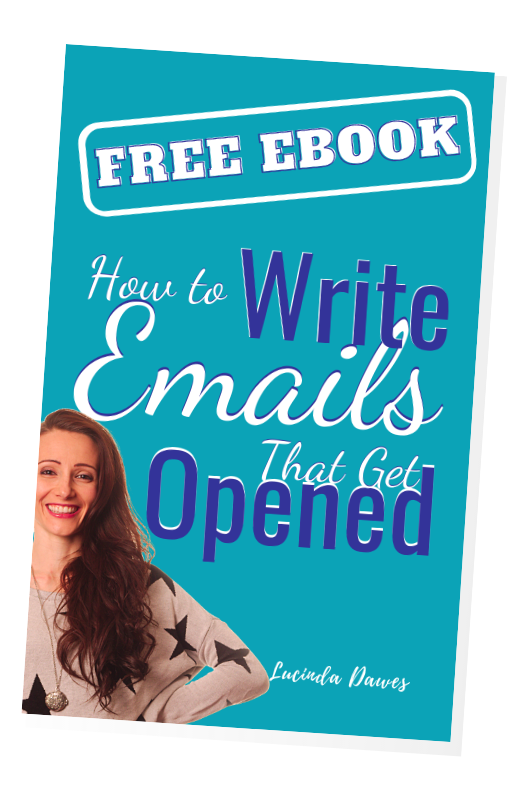
Read More Like This…
Could Evergreen Email Campaigns Save You Time?
You might have heard of evergreen trees. Firs. Oaks. Pines. Any tree that keeps its leaves green all year round, as the name ‘evergreen’ suggests. But what about evergreen email marketing? Did you know that it’s possible to write an email sequence that could start...
Content Marketing Vs PPC (Paid Ads) – Which Is Better?
If you’re new to marketing your business online, you might be wondering what the difference is between content marketing vs paid advertising. Surely they achieve the same thing? Well… not quite. This blog will give you an introduction to the similarities and...
5 Reasons Why Content Marketing Fails
Content marketing not working? Picture the scene. You’re writing content. You’re publishing it everywhere you can think of: blogs, emails, Facebook, Instagram… And what do you have to show for it? Nada. Or at least, very little. Sound like you? Don’t worry. This blog...
